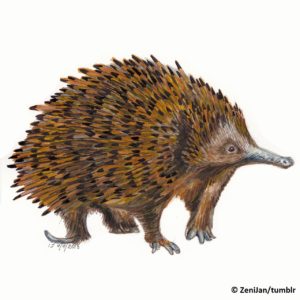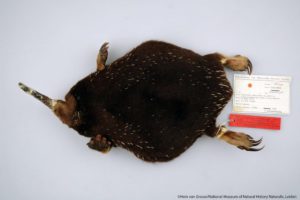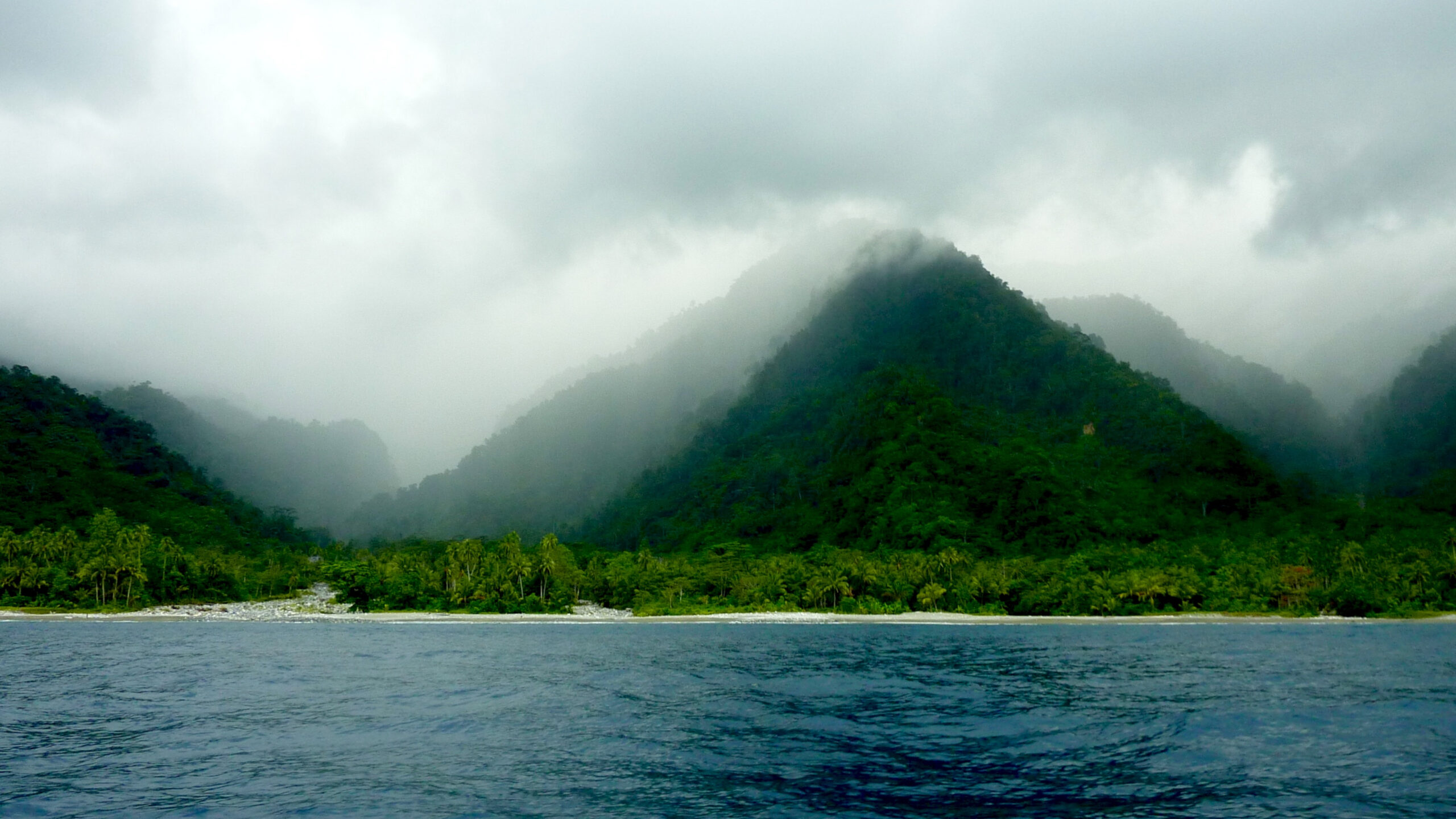Blog collaboration with Paul Barnes – EDGE’s Social Dimensions Specialist

This month marks Sir David Attenborough’s 96th birthday. So today, we highlight an EDGE species named to honour this incredible conservationist.
Although Sir David’s inspirational broadcasting is renowned worldwide, we cannot say the same of his elusive namesake, Attenborough’s long-beaked echidna (Zaglossus Attenborough, known locally as Payangko).

Echidnas are elusive at the best of times. They are primarily nocturnal, relatively small, and thought to spend days at a time underground. Attenborough’s echidna lives in the tropical forest on the steep slopes of the Cyclops Mountains in northern Papua. The species is known from just a single specimen collected by a Dutch botanist in 1961. There have been sightings of the species by local citizens since then, but sightings by scientists remain elusive, and some believe them to be extinct. Others question if it is even a distinct species from other long-beaked echidnas.
As the debate continues, here at EDGE, we remain confident that Payangko is out there. In a new collaboration with a dynamic team of organisations, we continue our efforts to establish the status of Payangko. The project team includes several organisations, including a representative from EDGE, as well as researchers from various universities. Konklusi (Yayasan Kolaborasi Inklusi Konservasi) is an Indonesian conservation NGO and they are joined by NGO Yappenda (Yayasan Pelayanan Papua Nenda) and Independent Research Institution Numbay Research Centre. Konklusi are currently beginning a fieldwork campaign on the northern slopes of the Cyclops Mountains deploying camera traps to search for Payangko. All three organisations are working towards inclusive and equitable conservation and development in Papua. These organisations will be joined by a multidisciplinary team of researchers, headed up by members of Oxford University for fieldwork in the Cyclops Mountains in 2023.
We eagerly await the findings of this exciting collaboration!
